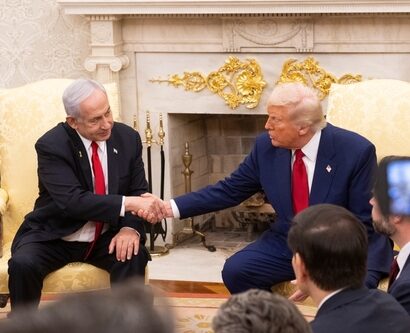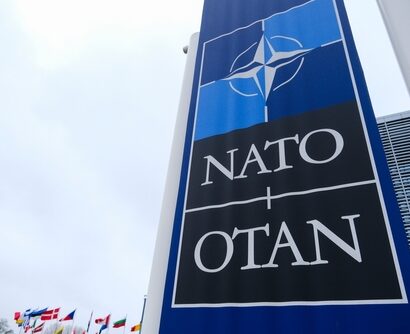Abstract: Russia’s war with Ukraine has put China in an uncomfortable position. It now faces three irreconcilable choices: Support Russia at the risk of contradicting core principles of its foreign policy and angering the West, abandon its alliance and support the West, or do nothing and tarnish its image as a responsible great power. Chinese foreign policy is risk-averse. At the same time, China has economic interests in Ukraine. Chinese scholars were announcing that a war would not happen, officials openly rejected US intelligence reports, and the embassy was complacent in evacuation planning. All considered China was likely caught by surprise when Russia invaded.
Bottom-line-up-front: The Russian invasion of Ukraine seems to have caught Beijing off-guard. This may have been due to a “mirror image” bias, in which Beijing based its assessments of Russian behavior on Chinese military philosophy.
Problem statement: How to assess the People’s Republic of China’s knowledge about Russia’s invasion of Ukraine?
So what?: No matter what path Chinese decision-makers decide to pursue, they would do well to appreciate the differing mental frameworks that shape other countries’ thinking and behavior. For analysts wishing to accurately interpret China’s behavior, it is critical to account for the broader contextual factors that underlie Beijing’s strategic calculations and avoid the temptation of jumping to conclusions.

Source: shutterstock.com/plavi011
As Russia continues its aggressive assault on Ukraine, some pundits have speculated that China’s leadership was aware of President Putin’s plans to invade the neighboring Slavic country. The New York Times recently published a report claiming that “Chinese officials told senior Russian officials in early February not to invade Ukraine before the end of the Winter Olympics in Beijing,” citing a “Western intelligence report” revealed by unnamed officials.[1]
A day before the games started, Chinese President Xi Jinping and his Russian counterpart sat down for a historic meeting that resulted in signing a joint statement that some analysts dubbed “a manifesto for a new world order”.[2] In addition to committing to deepen their strategic partnership, the document also denounced external forces like NATO and the rest of U.S. America’s alliance system “that seek to undermine sovereignty and foment color revolutions”. With the two countries forging what some have termed an ‘alliance of autocracies’ designed to counter the West, it is tempting to believe that Putin was transparent with Beijing about his intentions to start a war with another sovereign country.[3]
A day before the games started, Chinese President Xi Jinping and his Russian counterpart sat down for a historic meeting that resulted in signing a joint statement that some analysts dubbed “a manifesto for a new world order”.
The fact that China certainly would not have wanted a war to diminish the soft power potential inherent in hosting such a momentous event and that Putin began the full-scale invasion four days after the games had concluded, the New York Times assessment seems somewhat credible. While the optics may not favor claims that Beijing was indeed left in the dark, a more thoughtful assessment of the facts on the ground appears to paint a different picture.
China’s Traditional Foreign Policy
Moscow’s assault has put Beijing in an incredibly awkward position, one that promises to harm Beijing’s interests regardless of its choices.[4] If China’s leadership decides to overtly support Russia, China risks contradicting a core principle of its foreign policy: “non-interference” and “respect for sovereignty and territorial integrity”. Such a move would also risk and derail China’s already strained relations with the West. At the same time, Beijing cannot walk back on its newfound alliance with Moscow without losing credibility and face. Doing nothing, however, risks tarnishing China’s image as a responsible and great power.
Economically, China is a significant trading partner of Ukraine, considering the $15.4 billion in goods that flowed between the two countries in 2020.[5] Ukraine has also emerged as an important player in China’s efforts to improve food security across the mainland by diversifying its grain suppliers. These realities only further complicate matters for Beijing.
Notably, Xi Jinping is expected to secure his third term as president at the next Party Congress this October, and until then, maintaining economic stability is his top priority. The surging prices of coal, oil,[6] and food products in the wake of Putin’s war is less than desirable[7], especially for a country that suffered a massive energy crisis last year – not to mention its need to feed 1.4billion people.[8]
Ukraine has also emerged as an important player in China’s efforts to improve food security across the mainland by diversifying its grain suppliers.
Chinese foreign policy is notoriously interest-based and risk-averse, making it hard to believe that China would have so resoundingly aligned itself with the Kremlin on January 4 if it knew what was coming. As analysts at the Trivium China research group pointed out: “It would have been uncharacteristically shortsighted of Xi to knowingly hitch his wagon so thoroughly to a country that would, in short order, become a total international pariah”.[9] The potential for collateral sanctions would be another factor that would have caused Beijing to think twice before elevating its strategic partnership with Moscow to new magnitudes.
China Kept in the Dark?
That is not to say Beijing was utterly in the dark on the matter. While Putin may not have informed China of his plans, the U.S. certainly did. According to some media outlets, senior U.S. officials met multiple times with their Chinese counterparts, including Chinese Foreign Minister Wang Yi, to share intelligence that revealed that an invasion of Ukraine was imminent. America hoped that China might use its leverage over Russia to forestall the attack.
However, Chinese officials rejected American intelligence, stating that they “did not think an invasion was in the works”. On February 19, China’s foreign ministry spokesperson Zhou Lijiang even ridiculed U.S. warnings of an imminent invasion, referring to American intelligence as “a joke” in a post on the Chinese social media platform, Weibo. China also allegedly warned Russia that America was working to “sow discord” in their newly forged alliance.
On February 19, China’s foreign ministry spokesperson Zhou Lijiang even ridiculed U.S. warnings of an imminent invasion, referring to American intelligence as “a joke” in a post on the Chinese social media platform, Weibo.
According to the China Program Director at the Stimson Center, Yun Sun, prominent Chinese scholars were none the wiser. Two days prior to the breakout of war, an article titled “War Will Not Happen, But Frictions Will Continue” circulated widely across Chinese media.[10]Meanwhile, Professor Shen Yi of Fudan University held a lecture titled “A war that will never happen: Ukraine through the lens of great power games among the U.S., Europe, and Russia”. In light of the events, Renmin University’s Jin Canrong posted an apology on social media, admitting that his prediction was “wrong again”.
If that is not convincing enough, the behavior of the Chinese Embassy in Ukraine would have been rather peculiar if they were expecting Putin to unleash Russia’s military on Ukraine. While the U.S. embassy encouraged its citizens to get out, the Chinese embassy disseminated information for nationals wishing to get vaccinated in Kharkiv between February 21-25 – the exact days that Moscow mobilized its troops to attack the city.
The Chinese embassy did not have an evacuation plan until February 27 — three days after Ukraine closed its airspace — another telltale sign that Beijing was unaware of the impending war. The Chinese Communist Party has been subjected to severe domestic blowback in its failure to protect the safety of its citizens abroad. In point of fact, two separate incidents which occurred back in 2004 in Kunduz (Afghanistan) and Gwadar (Pakistan) claimed the lives of 14 Chinese nationals and sent shockwaves through media outlets across the mainland.[11] Since then, Chinese central authorities have reassessed the importance of protecting their overseas citizens.
The Chinese embassy did not have an evacuation plan until February 27 — three days after Ukraine closed its airspace — another telltale sign that Beijing was unaware of the impending war.
If decision-makers in Beijing believed the threat to Ukraine was credible, they would have undoubtedly done more to prepare, perhaps even applying pressure on Moscow not to go through with the attack – just as the U.S. had requested.
A Strategic Miscalculation
If China did indeed fail to predict the crisis, it raises questions as to how exactly Beijing managed to make such a mammoth strategic miscalculation. According to Yan Sun, it was the result of a “mirror image bias”: that “Chinese assessment of Russian intentions was based on China’s own military philosophy”. Chinese military strategists like Sun Tzu contend that “to win 100 battles is not the acme of skill, to win a war without fighting is the acme of skill”.
As Yan Sun elaborates, ancient Chinese strategic thinking dictates that “the best military operations ranked are: undermining the enemy’s plans, then diplomacy, then defeating the enemy on the battlefield (上兵伐谋,其次伐交,其次伐兵,其下攻城)”. A full-scale war is always the least desirable last option. According to this interpretation, China viewed the Russian encirclement of Ukraine as somewhat of a fait accompli, believing that the next step would be to bargain from a position of strength. Russia already seemed to have the upper hand, making Beijing believe that war was unnecessary.
Chinese assessment of Russian intentions was based on China’s own military philosophy.
If this interpretation holds, it reinforces the idea that nations view the world through unique culturally inherited mental frameworks that they subsequently project (unconsciously) onto others with vastly different histories and cultures. When it comes to China and the Ukraine crisis, the case underscores the perils of succumbing to such biases.
Dale Aluf is the director of research and strategy at SIGNAL – Sino Israel Global Network & Academic Leadership. The views contained in this article are the author’s alone and do not represent the views of SIGNAL.
[1] Edward Wong and Julian E. Barnes, China Asked Russia to Delay Ukraine War Until After Olympics, U.S. Officials Say (New York Times, March 02, 2022), retrieved from https://www.nytimes.com/2022/03/02/us/politics/russia-ukraine-china.html.
[2] Joint Statement of the Russian Federation and the People’s Republic of China (February 04, 2022), retrieved from http://en.kremlin.ru/supplement/5770.
[3] David Leonhardt, A New Axis. (New York Times, February 09, 2022), retrieved from https://www.nytimes.com/2022/02/09/briefing/china-russia-alliance.html.
[4] Evan A. Feigenbaum, China Faces Irreconcilable Choices on Ukraine (Carnegie Endowment for International Peace, February 24, 2022).retrieved fromhttps://carnegieendowment.org/2022/02/24/china-faces-irreconcilable-choices-on-ukraine-pub-86515.
[5] Interview, The China-Ukraine Partnership: Surviving a Deteriorating Strategic Environment – Three questions to Yurii Poita (Institut Montaigne, February 09, 2022), retrieved from https://www.institutmontaigne.org/en/blog/china-ukraine-partnership-surviving-deteriorating-strategic-environment.
[6] Francesca Regalado, Coal, oil surge as Ukraine war disrupts commodities trading (Nikkei Asia, March 03, 2022), retrieved from https://asia.nikkei.com/Business/Markets/Commodities/Coal-oil-surge-as-Ukraine-war-disrupts-commodities-trading.
[7] Siobhan McDonough & Youyou Zhou, What the Russian invasion of Ukraine could mean for global hunger (VOX. February 27, 2022), retrieved from https://www.vox.com/future-perfect/2022/2/27/22950805/russia-ukraine-food-prices-hunger-invasion-war.
[8] Ariel Cohen, China’s Energy Crisis Deepens With Potentially Fatal Consequences (Forbes. October 19, 2021), retrieved from https://www.forbes.com/sites/arielcohen/2021/10/19/chinas-energy-crisis-deepens-with-potentially-fatal-consequences/?sh=2248af11163a.
[9] Trivium China, Parsing China’s timeline on Ukraine (Neopol, March 01, 2022), retrieved from https://triviumchina.com/2022/03/01/quick-take-parsing-chinas-timeline-on-ukraine/?mc_cid=2e4f86129c&mc_eid=4f54be2d2f.
[10] Yun Sun, Ukraine: Did China Have a Clue? (Stimson Center. February 28, 2022), retrieved from https://www.stimson.org/2022/ukraine-did-china-have-a-clue/.
[11] Dale Aluf, China as a Conflict Mediator: Interests, Influence, and Implications for the Israeli-Palestinian conflict (SIGNAL, 2021), retrieved from https://sino-israel.org/wp-content/uploads/2021/11/China-as-a-Conflict-Mediator-November-2021-1.pdf.






